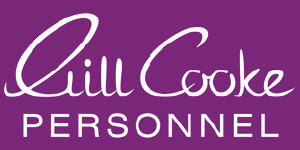CV writing and interview advice
The Do’s and Don’ts of writing an effective CV.
Do…
- Use a confident tone and positive language. Use positive words to start sentences, such as initiated, improved, introduced, developed, negotiated, established, created, pioneered, delivered, increased, reduced, saved etc. This also helps to ensure that you’re substantiating your skills with hard evidence.
- Include your skills and achievements as well as your responsibilities.
- Encourage the employer to read on. Ensure that you put your most salient points on the first page of the CV to include your greatest successes and achievements and proven examples of how you have used your skills to benefit the companies you have worked for.
- Rise above the competition. Make sure you include other skills that could set you apart from other candidates, such as language and IT skills.
- Keep to the point. Be ruthless with yourself and keep your CV to a maximum of two pages, if you can.
- Check, check and check again. Check thoroughly for correct spelling and grammar – spotting errors is a quick and easy way of weeding out weaker candidates when faced with a mountain of CVs to read. Don’t just rely on your computers spellchecker, but get someone else to proof it – you may have spelt a word correctly but used it in the wrong place.
- Use relevant keywords. With posts advertised through job boards and online recruiters, keywords are entered into databases to find the most relevant jobseekers without having to trawl through 1000s of candidates. These keywords will include specific technical skills like SAP or qualifications like ACCA or specific job titles like ‘Customer Services Advisor’. Make sure your CV mirrors the language used in the advert.
- Capture immediate attention. Prioritise the content of your CV and detail the most relevant information first. Start with a personal profile and make sure that all your career history is concise and to the point.
Don’t …
- Expand the truth. Most employers are not fooled by creative embellishments.
- List everything. An employer really doesn’t need or want to know all the one-day training courses you have ever been on. Keep information relevant and to the point.
- Include a photo. No matter how attractive you make yourself look, it will not improve your chances. This tends to be popular in other European countries but isn’t favoured by the majority of UK businesses.
- Get creative. Don’t use elaborate fonts and colours to make your CV stand out. The more gimmicky you make your CV using different shapes and pictures, the more off-putting it will be to an employer. It will also make it more difficult to upload to jobsites.
- Divulge sensitive information. Never include your NI or passport number or any other sensitive personal information on your CV.
- Tailor your CV. Your CV should be strong enough to be used for different positions that you are applying for. It is your covering letter (or in our case, the Gill Cooke Personnel profile) that should tailor your application for different roles.
- Talk in clichés. Phrases such as ‘I am a highly motivated individual who works well on my own or in a team, with exceptional communication skills and the ability to work under pressure to produce results under tight deadlines’ have become dull and the employer has heard them all before. Try to make yourself stand out with carefully worded phrasing that is factual and captures the employer’s attention.
Interview advice
- Do your research. Commercial knowledge is key in the interview process. Ahead of the interview, check out their website, read up on interesting facts about the organisation and familiarise yourself with competitor knowledge. Find out what people are saying about them – in the press, on TV, and online.
- Mirror your interviewer. Everyone is individual in their approach to meeting people. Personality will be important in terms of fit within the organisation. Corporate organisations tend to look for a more formal approach during interview, so dress to impress, and try to articulate your answers well. Other companies may take a more relaxed, informal approach to interviews, so try to adapt your style, but do try to relax and remember to be yourself!
- It’s a two way street. Interviews are not just for the hiring manager to get to know you, but for you to get to know them too. Prepare a couple of questions for the end of your interview; it shows you are interested in the role and company, and that you are really considering whether the role is for you.
- Assume nothing. Never assume the interviewer knows what you do. Interview panels base their decisions on the interview process so always give a full detailed response rather than glossing over what you have achieved.
- Go prepared. Go through the job description and highlight the key responsibilities of the role. Next to those responsibilities list examples that demonstrate your previous experience and remember these for your interview. Knowing that you have done your homework and that your answers relate to the role will help you appear confident and professional.
- Use a stalling tactic. It’s a good idea to ask for a glass of water so if you need time to reflect on a question before answering, you can take a sip! This allows you time to think of a suitable answer without any uncomfortable silences.
- Watch the clock. A common mistake is to talk too much during the interview. It is important to listen to the question asked and answer that particular question. Keep your answers to the point – it will help you stay more focused. It is very easy to stray off the subject and ramble about things that are irrelevant to the job if your answer is too long.

